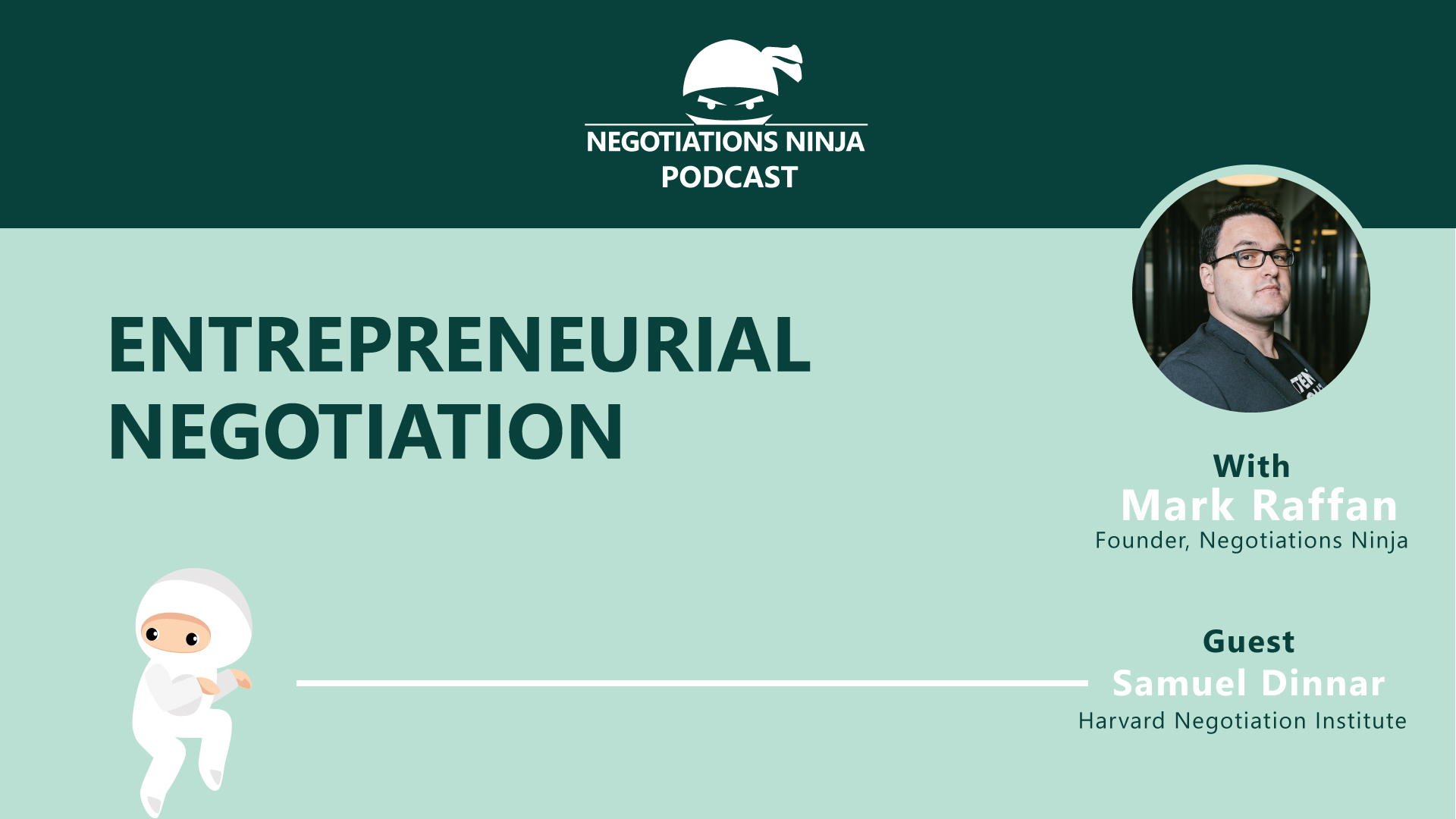This week we’re focusing on entrepreneurial negotiation and why entrepreneurs should care about developing negotiation skills. Author, speaker and teacher Samuel Dinnar joins us to discuss the eight common mistakes entrepreneurs make when they focus on scale and growth while neglecting developing their negotiation skills. How can entrepreneurs manage the relationships that determine their business’s success?
Why is negotiating so important for entrepreneurs? Entrepreneurs are constantly negotiating for resources they don’t always control. They need someone to invest in their product or idea, or even work for them without a promise of reward. On the customer side, they need people to believe in a product that may not exist from a company who may not be around in six months. So negotiation skills are critical regardless of what stage an entrepreneur is at with their business – from idea stage to seed stage to growth stage to expansion stage.
The 8 Common Negotiation Mistakes
- Entrepreneurs are self-centered. Because entrepreneurs are focused on their own interests (their pitch, their needs, their wants) they often fail to consider the needs, wants and priorities of their investors, customers, employees and partners.
- Entrepreneurs are overly optimistic and overconfident. Launching a business involves risk, uncertainty, disruption, and much more. Yet despite all the risk, entrepreneurs tend to be overly confident and strongly believe they will be successful (especially if they’ve overcome long odds in the past) even in the face of failure rate statistics.
- Entrepreneurs need to win – now. Negotiation professionals will tell you “winning” is reaching an agreement that is better than every no-agreement alternative. But, with entrepreneurs, sometimes beating an opponent (no matter what the cost) becomes the “win”.
- Entrepreneurs are too quick to compromise. Entrepreneurs are multitasking “doers” who need to get stuff done fast with limited resources. So they often feel like they have to decide quickly and move on so they accept simple compromises.
- Entrepreneurs work alone. Entrepreneurs are used to doing a lot with very little so they work alone in the startup phase and continue working alone as their business grows. The solo mindset becomes a problem when an entrepreneur overestimates what and how much they can do on their own, which can lead to lack of consultation, misreading unfamiliar signals, or emotional venting at the wrong time.
- Entrepreneurs haggle. Most entrepreneurs are convinced that their product, service or idea is unique – a unicorn – and therefore monetarily valuable. And while they may have had success convincing customers of that they tend to see the price of their product as their ultimate validation so they haggle on pricing to measure their success.
- Entrepreneurs rely too heavily on their intuition. Entrepreneurs are busy and don’t always have the time to prepare before a negotiation. So they decide to wing it and throw out all the proven theory and practice tips that negotiation professionals are experts at. When what worked before isn’t working this time, and a negotiation is going sideways, entrepreneurs tend to blame others and don’t learn from their mistakes.
- Entrepreneurs deny their emotions. Just like the rest of us, entrepreneurs are humans and humans have emotions. While claiming “it’s not personal” or “it’s just business”, entrepreneurs tend to overvalue power, leverage and control while overlooking the emotional needs every person brings to the table.
Samuel Dinnar has more than 25 years of general management, strategic growth and operations team leadership with an exceptional track record of corporate growth, value-creating product management, multifaceted sales and hands-on development in hi-tech and aerospace, including international experience as an entrepreneur, strategy consultant, board member and investor – all , strengthened by experience in air force operations, servant-leadership and extensive deal making. As a Harvard Alumni, he gives back to his Alma mater as an instructor at the Harvard Negotiation Institute and is taking the Harvard programs global and teaching in Asia, London, Rome, Tel Aviv and Denmark.
Connect with Samuel Dinnar
Episode Sponsor
- ProcureCon Indirect East
- 25% Discount Code: PIE19NN




